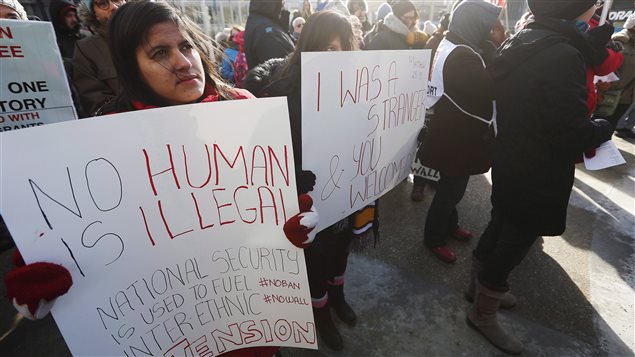While several Canadians cities have declared themselves to be sanctuaries, there has not been enough action to make them so, says Prof. Graham Hudson of Ryerson University. He says it’s good that cities say they want to extend services to non-status migrants but they need to do more to make it happen.
ListenThere are about half a million non-status migrants now living in Canada. They may, for example, be people who have had refugee claims rejected and are awaiting appeals that may take years. In the meantime, they start families, work and pay taxes and yet they are denied access municipal services.
‘Extreme vulnerability’
“People who lack status are in a position of extreme vulnerability,” he says. “They oftentimes are subject to exploitation at the workplace or abuse at home and they need to be able to contact government to get support to protect their human rights. Without a sanctuary city, that’s not likely to happen.”
Hudson says cities need to train their employees, particularly police, on how to interact with vulnerable populations. He suggests outreach programs to help cities cultivate trust. Another suggestion is drawn from a practice adopted by some U.S. cities and that is to issue municipal identification cards to non-status migrants giving them the right to access various services such as dental, health, pre-natal, immunization and shelters.
‘Take action, provide funding’
Toronto declared itself to be a sanctuary city in 2013. Hudson says it has taken steps to assess the feasibility and cost of implementing that and little has changed on the ground. He says it is time for Toronto to take action and provide funding so that Toronto can truly provide services to non-status migrants. That could be said of several Canadian cities which have made similar declarations.







For reasons beyond our control, and for an undetermined period of time, our comment section is now closed. However, our social networks remain open to your contributions.